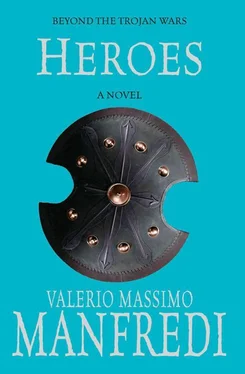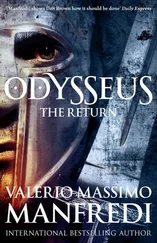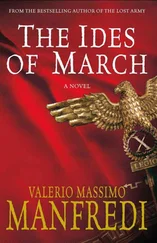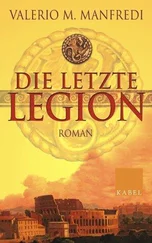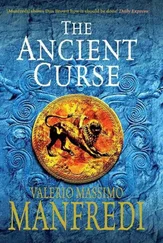Valerio Manfredi - Heroes
Здесь есть возможность читать онлайн «Valerio Manfredi - Heroes» весь текст электронной книги совершенно бесплатно (целиком полную версию без сокращений). В некоторых случаях можно слушать аудио, скачать через торрент в формате fb2 и присутствует краткое содержание. Жанр: Исторические приключения, на английском языке. Описание произведения, (предисловие) а так же отзывы посетителей доступны на портале библиотеки ЛибКат.
- Название:Heroes
- Автор:
- Жанр:
- Год:неизвестен
- ISBN:нет данных
- Рейтинг книги:3 / 5. Голосов: 1
-
Избранное:Добавить в избранное
- Отзывы:
-
Ваша оценка:
- 60
- 1
- 2
- 3
- 4
- 5
Heroes: краткое содержание, описание и аннотация
Предлагаем к чтению аннотацию, описание, краткое содержание или предисловие (зависит от того, что написал сам автор книги «Heroes»). Если вы не нашли необходимую информацию о книге — напишите в комментариях, мы постараемся отыскать её.
Heroes — читать онлайн бесплатно полную книгу (весь текст) целиком
Ниже представлен текст книги, разбитый по страницам. Система сохранения места последней прочитанной страницы, позволяет с удобством читать онлайн бесплатно книгу «Heroes», без необходимости каждый раз заново искать на чём Вы остановились. Поставьте закладку, и сможете в любой момент перейти на страницу, на которой закончили чтение.
Интервал:
Закладка:
The echo of that devastation spread everywhere; it crossed the sea and lapped at the coast of Hesperia, where for years Diomedes had been leading an obscure life in the poor village he had built. His bride was long dead, along with the child she had tried to bear him.
One evening, at the end of the summer, a boat laden with refugees came ashore near Helpie. They were Achaeans who had fled their invaded homeland with their wives and children. Nothing was left to them; their houses had been destroyed, their cities burned to the ground. As soon as he heard of them, Diomedes hastened to greet them, bringing them dry clothing and food.
When they had eaten their fill, when they had finished telling their stories, the hero asked them: ‘Do you know who they are? Do they rule over the entire land of the Achaeans?’
‘They are called Dor ,’ replied the eldest among them, ‘and they are invincible. They form a single, dreadful animal with their horses by mounting them bare-backed. They have weapons stronger than the best bronze; not a shield can withstand them, nor a cuirass or helmet. Our warriors never had a chance against them, and yet they never gave up the fight. Only Mycenae has resisted, and Argos; their walls still protect them, but their destiny is in the hands of the gods, if they still think of us.’
Diomedes turned to Myrsilus, who sat next to him, bouncing on his knee the small son he had generated with a native woman. He had a strange light in his eyes, a light that Myrsilus had thought gone for ever. The king said: ‘Argos is holding out. Did you hear that? Argos resists!’
Myrsilus regarded him with bewilderment: their days of weapons and blood were so far away, now. Every evening he sat with his son on the shores of the sea to watch the waves changing colour. Sometimes Malech, the Chnan , who had never taken to the seas after all, came to sit with them as well. Myrsilus told his boy the story of their king, who had once lain siege to a great city in a far-off land; he told him of the gods who had fought at their side and of the endeavours of the heroes: Ulysses master of deceit, Great Ajax, big-voiced Menelaus and Diomedes son of Tydeus, victor of Thebes of the Seven Gates. But the stories he told were like fables of a remote time, as enchanting as they were no longer true.
But suddenly, looking into Diomedes’s eyes, he realized that time had never killed the spirit of the Argive hero; the fire was still burning after so many years under the ashes.
‘I’m leaving,’ he said. ‘Perhaps a ship can still land at Temenium. Perhaps the fortress of Tiryns still defends the road from the sea.’
Myrsilus felt his heart plummet. He looked at his son and then said: ‘What you are thinking is pure folly. Those cities will have fallen by now. Thank the gods that they have reserved this place for us, where we can live in peace. Look at those wretches: they are miserable, they have nothing.’
Diomedes smiled: ‘Do not fear. You men will stay here and live in peace. You have your children, and your wives. It is right for you to stay. But I have nothing, only my memories. I lost my bride and the child who was about to be born, but Argos is still alive at the bottom of my heart. She is the beloved homeland I have never forgotten. Listen to me: an oak cannot generate a rush, nor can an eagle give birth to a crow. Now I know what I must do. I will die with my sword in my fist, but I will see the sun shine on the towers of Argos, one last time.’
It was impossible to dissuade him, and for the first time after years and years his comrades saw him as he once was. He seemed reborn to a new life, not a man rushing towards death.
He asked King Daunus for a ship but the man burst out laughing and said: ‘With what will you pay me? A handful of sea salt, and the wool of your sheep?’ The king was coarse and greedy.
But Diomedes did not react. ‘With this,’ he said calmly.
He lifted the blanket that covered the pack on his mule’s back. Sparkling gold wounded the eyes of the native king, who was struck speechless. A suit of armour of dazzling beauty, all gold, gleaming in the sun. The armour once worn by Glaucus, the Lycian hero. He had given it to Diomedes on the field of battle as a hospitable gift, exchanging it with his own copper armour.
‘Will you give me a ship and oarsmen?’ he asked again. Daunus drew closer, his hand hovering over that wonder as if he were afraid that he would burn himself by touching it.
‘Yes. . yes. .’ he whispered, still not believing his eyes.
‘Good,’ said Diomedes. And he covered the armour and led off his mule. ‘I want it to be ready as soon as possible,’ he said as he left the courtyard. ‘The sooner it is ready, the sooner you will have what I’ve shown you.’
He walked off to return to his city. Daunus started, as if awaking suddenly from a dream: ‘Who are you anyway?’ he shouted, as the other walked away. But Diomedes did not answer, nor did he turn.
‘Who are you really?’ repeated Daunus, more softly now, as if speaking to himself. He watched as the man walked towards the sea with long strides, his wide arms alongside his body, as if the suit of armour still weighed on his shoulders.
‘But then it’s true,’ said Daunus again. ‘You truly are Diomedes, the king of Argos.’
As soon as the ship was ready and the crew enlisted, Diomedes went to the sea to board, bringing with him only his clothing and his weapons. He wanted to leave immediately, although the weather was not good and a cold wind blew over the sea, agitating the waves. But when he arrived he saw the ship empty and his comrades drawn up on the beach. With them were Malech, the Chnan , and Lamus, son of Onchestus. They had never had the heart to abandon him.
‘Where is my crew?’ he asked in surprise.
Myrsilus stepped forward: ‘We’re here. Remember, wanax ? If you live, we shall live. If you die, we will die with you. You were right: an eagle cannot become a crow. Let us set sail.’
‘No,’ said Diomedes. ‘No. I will go alone. Return to your city. I command you to do so, if I am still your king.’
Myrsilus smiled: ‘If we obey, will this be the last order you give us in this land?’
‘The last,’ nodded Diomedes. And his voice was veiled with sadness.
‘Very well,’ said Myrsilus. ‘All aboard then,’ he shouted to his comrades. ‘Argos is our city!’
The comrades shouted: ‘ARGOS!’
Diomedes watched as they took their places at the thwarts and cast off the moorings and his eyes brimmed over. As the ship began moving, he leapt up to grab the rail and vaulted aboard. He stood beside Myrsilus at the helm.
The men hoisted the sail and the ship gained speed, bound towards the open sea. Diomedes’s plan was to head east towards a small group of rocky islands and then to turn south and sail steadily in that direction.
The wind was picking up, but no one thought of turning back. The Chnan glanced nervously up at the darkening sky. A shout suddenly echoed from the bow: ‘Ship starboard!’
Diomedes ran to the ship’s side and scanned the sea; a vessel was approaching them from the north. The insignia of the Spartan Atreides stood out on the faded sail.
‘Strike the sails!’ shouted Diomedes. ‘It’s a Spartan ship!’ The crew furled the sails and the oarsmen manoeuvred to maintain their position.
When the ship was within eyeshot, an incredulous expression came over the king’s face, as if a ghost had suddenly appeared before him.
‘Anchialus!’ he shouted out. From the ship a voice even louder than his own answered: ‘Wanax!’
In a few moments, the two vessels were side by side. Anchialus jumped on board and embraced the king with tears in his eyes. ‘I’ve been searching so long,’ he gasped between sobs, ‘so long!’ All of the comrades gathered round and embraced him. Only the Chnan remained at the helm and gravely watched the white seafoam that frothed leeward, pounding the ever-nearing islands.
Читать дальшеИнтервал:
Закладка:
Похожие книги на «Heroes»
Представляем Вашему вниманию похожие книги на «Heroes» списком для выбора. Мы отобрали схожую по названию и смыслу литературу в надежде предоставить читателям больше вариантов отыскать новые, интересные, ещё непрочитанные произведения.
Обсуждение, отзывы о книге «Heroes» и просто собственные мнения читателей. Оставьте ваши комментарии, напишите, что Вы думаете о произведении, его смысле или главных героях. Укажите что конкретно понравилось, а что нет, и почему Вы так считаете.
